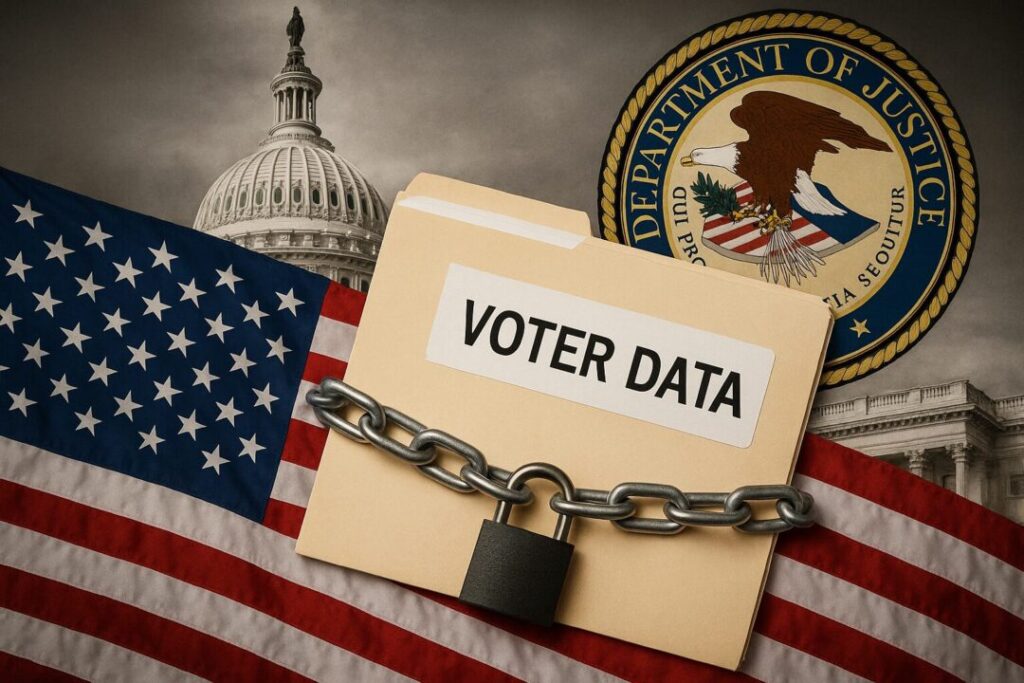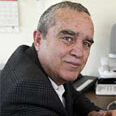Local election officials in at least nine states – including Nevada – are raising concerns about what they see as growing federal interference in state-run elections after the Department of Justice sent letters requesting access to voter roll data and discussions about inspecting voting equipment.
The Trump administration has defended the effort as part of a broader push to improve election security and remove ineligible voters from the rolls, but even some Republican clerks and legal experts are uneasy about how it’s being handled – especially when it comes to sensitive data and access to voting machines.
In Colorado, former Rep. Lauren Boebert’s ex-chief of staff, Jeff Small, has been contacting GOP county clerks and saying he’s working “with the White House” on an “election integrity project.”
According to clerks, Small asked whether the federal government or a third party could inspect voting equipment, something state law tightly restricts.
“That’s a hard stop for me,” said Carly Koppes, the Republican clerk in Weld County. “Nobody gets access to my voting equipment, for security reasons.”
Fremont County Clerk Justin Grantham, also a Republican, said the request felt like a pre-2026 “intervention.” He declined the inspection request, citing legal limitations.
Election officials from both parties have expressed skepticism about the push. More than 350 of them joined a nationwide conference call hosted by the Center for Election Innovation and Research to discuss the potential implications.
“This is an extraordinary imposition of federal power over states’ election processes that, if it is accepted by the states in this context, will be absolutely used by Democrats in another context,” said David Becker, who served in the DOJ’s voting section under both Presidents Clinton and George W. Bush.
In Nevada, where concerns about voter roll accuracy have been mounting since 2020, the DOJ’s letter has been met with caution. State officials confirmed they received the request but are still reviewing whether and how to respond. Nevada was among the states that declined to provide detailed voter data to the Trump administration’s presidential commission during his first term.
Some states like Florida and Colorado have provided the DOJ with limited, publicly available voter information – but other states are holding back, especially when the request includes sensitive data like birth dates or the last four digits of Social Security numbers.
Federal law gives the DOJ the ability to ensure states maintain their voter rolls, but it does not authorize the federal government to collect the data directly. That’s where critics say the line may be getting crossed.
“This all is part of a bigger ploy to further undermine our voting in this country,” claimed Colorado Secretary of State Jena Griswold, a Democrat. Even those who disagree with Griswold politically have echoed concerns about centralized control of elections.
Ann Jacobs, chair of the Wisconsin Elections Commission and a Democrat, questioned whether this is a “backdoor way” to access data that federal statutes otherwise prohibit them from collecting.
Election officials across the country have been on edge since 2020, when accusations of fraud and mismanagement — some later proven false — triggered harassment, litigation, and new pressure for transparency. But many of those same officials now say the DOJ’s approach under the Trump administration feels like too much, too fast.
“This is the 2020 playbook on steroids,” Griswold warned.
The administration has also leaned on an executive order issued by President Trump to justify the effort. Courts have blocked some parts of that order, like changing mail-in ballot deadlines and requiring proof of citizenship to vote, but other provisions — including data sharing — remain in effect.
Homeland Security has reportedly been involved as well. In Colorado, El Paso County Clerk Steve Schleiker said he received a follow-up call from a DHS official after speaking with Small. “We would like to test the voting equipment to see if there’s any gaps,” the official reportedly said.
Schleiker rejected the request, saying the federal government has “no authority to try to infiltrate a state’s or a county’s election equipment.”
Legal experts say the administration would need access to personal identifiers like birth dates to accurately match records and flag ineligible voters — a step some see as necessary for clean rolls, but others view as dangerous and overreaching.
“It’s one thing if a county’s voter file gets hacked,” said Justin Levitt, a law professor and former Biden White House advisor. “It’s a much bigger problem if the federal government is amassing a national voter file that gets hacked.”
For many conservatives, the bigger issue is precedent. If Republicans support these steps now, what happens when Democrats return to power?
The guiding principle remains: elections should be run by the states, not managed by federal bureaucrats from Washington. And in places like Nevada — where election integrity remains a hot topic — voters are watching closely.
This article was written with the assistance of AI. Please verify information and consult additional sources as needed.




